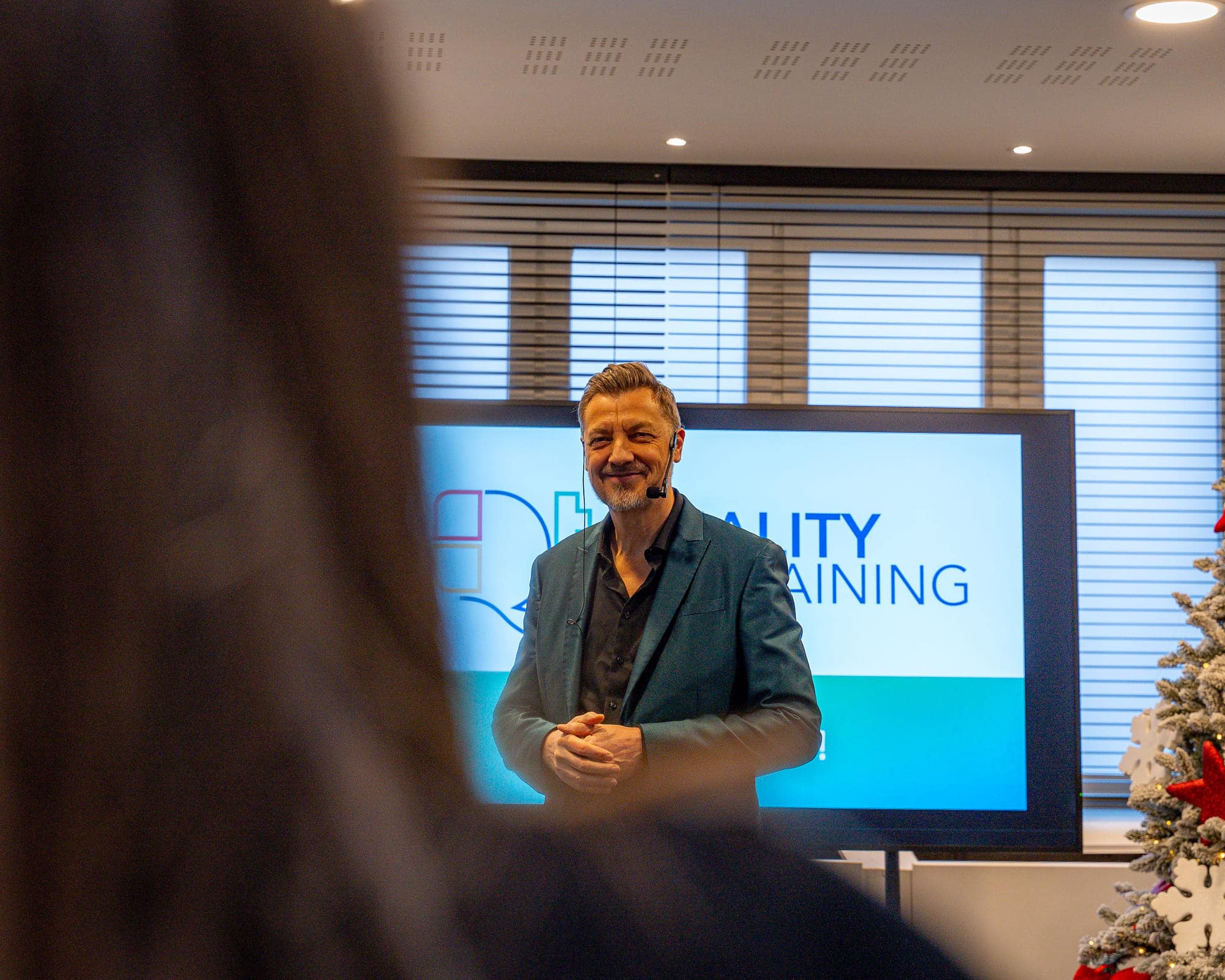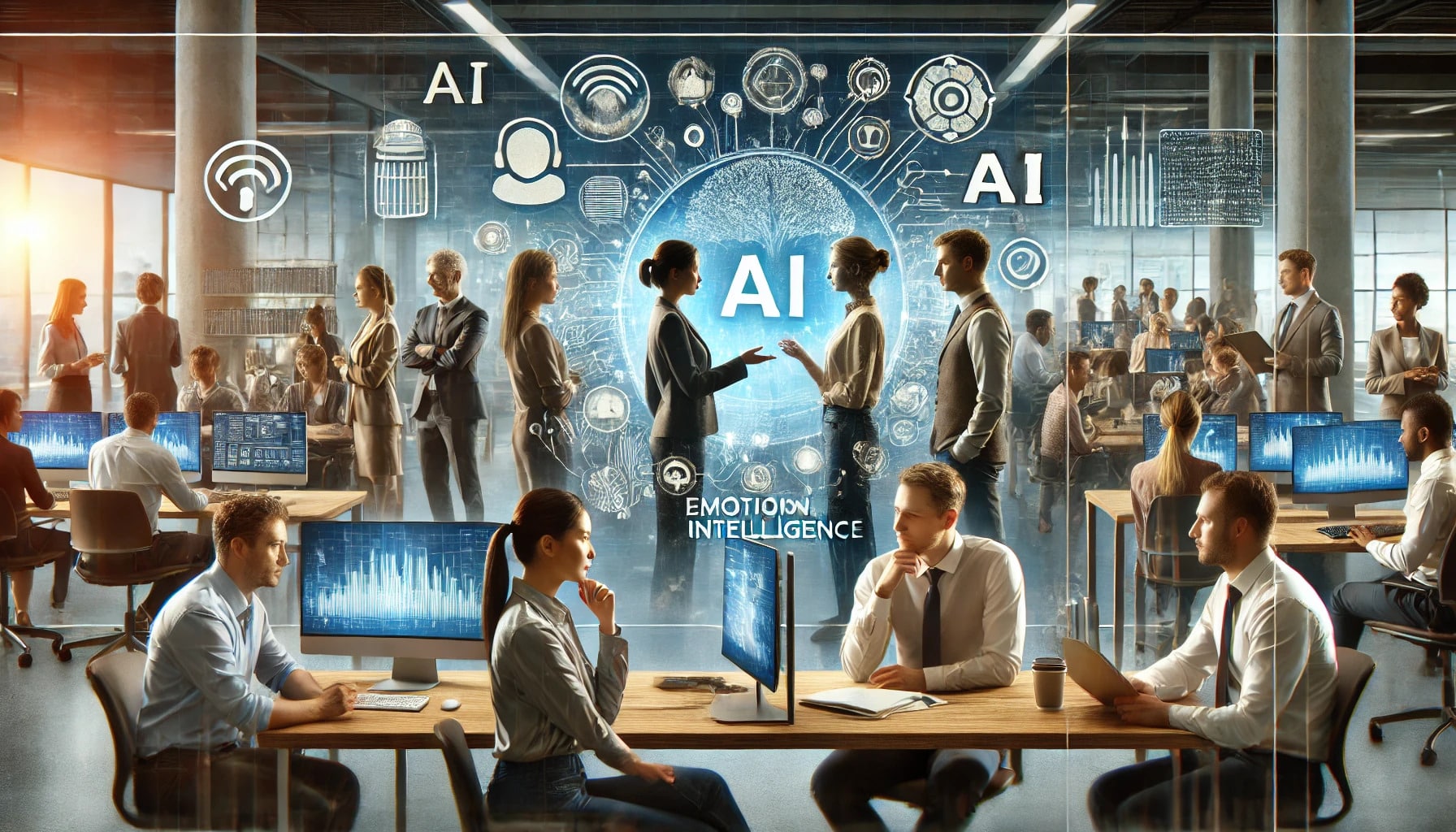
Artificial intelligence is rapidly transforming work environments by automating complex tasks and improving efficiency. However, as AI evolves, it highlights an essential need: soft skills or human competencies.
While technical skills are necessary to interact with AI, human skills such as communication, empathy, collaboration, and problem-solving have become just as crucial for navigating a world where AI is an integral part of daily operations.
How can we value and cultivate these indispensable skills in a human-machine world? That’s what we will explore in this article.
Why are soft skills essential when working with AI?
Soft skills are defined by interpersonal and emotional qualities that facilitate communication and collaboration in a professional environment. While AI excels in data analysis and automating repetitive tasks, it remains limited in managing emotions, creativity, and human interactions.
McKinsey highlights that by 2030, the demand for social and emotional skills will increase by 24% due to growing automation.
Soft skills enable professionals to collaborate effectively with AI by interpreting the results provided by machines and making informed decisions. For instance, a project manager must understand the data generated by an AI algorithm while also being able to assess the human impacts of each decision.
The most important soft skills for managing AI
Communication
AI can automate some communications, but it does not replace human interactions. Communication remains essential, especially in environments where teams need to interpret and explain the results of complex algorithms.
Critical Thinking
AI can provide data-driven solutions, but it cannot always understand the nuanced context of problems. This is where critical thinking comes in, an indispensable human skill for analyzing AI-produced data and determining whether it is relevant and applicable to a given situation.
A LinkedIn study shows that 57% of global leaders consider critical thinking to be one of the most sought-after skills in an automated work environment.
Emotional Intelligence
Automation and AI can create more stressful environments for employees who feel they are being replaced by machines. Developing emotional intelligence allows leaders and managers to support their teams during this transition.
Managers who can understand and respond to the emotional concerns of their employees strengthen engagement and facilitate the adoption of AI within teams.
Collaboration
As AI becomes a daily work partner, the ability to collaborate with both machines and humans becomes essential. Good collaboration between human teams and AI algorithms optimizes processes while ensuring that automated decisions are reviewed and corrected by humans.
How to develop soft skills to better utilize AI?
Specific Training
Companies must invest in training programs to improve the social and emotional skills of their employees while helping them understand how to work with AI.
Encourage a culture of listening and collaboration:
Leaders should create an environment where open communication and empathy are valued, especially when teams are working with automated tools.
A culture that values human skills encourages more harmonious adoption of AI technologies and reduces friction related to automation.
Conclusion
As artificial intelligence takes a central role in businesses, soft skills become indispensable for the smooth management of this technology in daily operations. Communication, critical thinking, emotional intelligence, and collaboration help offset AI’s limitations while maximizing its potential.
Investing in the development of these skills is key to successfully enabling humans and machines to work seamlessly together in an increasingly automated environment.



